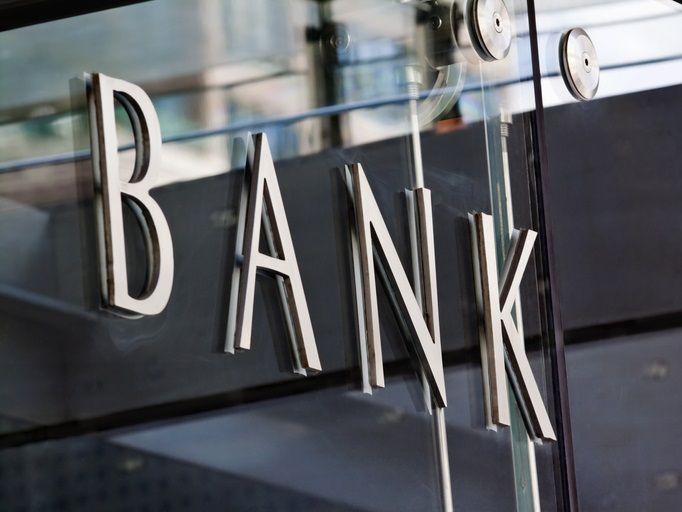UK bank shares to buy, sell and hold
There are two banks that this number cruncher would love to own, and others that he wouldn’t.
14th July 2020 14:29
by Graeme Evans from interactive investor
There are two banks that this number cruncher would love to own, and others that he wouldn’t.

The outlook for UK banks has rarely been so grim, but that's not stopped a leading City analyst from highlighting value in his favoured sector picks of Barclays (LSE:BARC) and Virgin Money (LSE:VMUK).
Robert Noble, a banking research analyst at Deutsche Bank, cites the income diversity of Barclays and Virgin's relative interest rate insensitivity as reasons for preferring the pair over the more revenue impacted The Royal Bank of Scotland (LSE:RBS) and Lloyds Banking Group (LSE:LLOY).
Among the Asia-focused players, Standard Chartered (LSE:STAN) is regarded more favourably than HSBC due to its less rates sensitive business model and greater flexibility in its cost base.
Unsurprisingly, Noble notes that these are difficult conditions for bank investors to thrive. As well as the immediate economic impact of Covid-19, the medium-term outlook is clouded by record low interest rates, muted loan growth forecasts and the overhang of Brexit negotiations.
- Invest with ii: Top UK Shares | Share Tips & Ideas | Open a Trading Account
However, he thinks UK banks are in better shape than during the global financial crisis as the banking system should be able to withstand severe economic scenarios, and still look relatively comfortable on capital requirements.
UK bank shares have so far declined by 38% in the year-to-date, underperforming the FTSE 100 index by 19%. The comparison with European banks is more favourable at 5% lower, with large declines in UK and US interest rates hitting UK players more than European rivals.
Noble said:
“At first glance UK banks screen as value, but on a relative basis not materially so — and significant risks remain.”
No single UK bank will tick all the boxes for investors, but Noble notes that Barclays' diversity across products and geography is a positive.
In particular, the investment banking arm is a countercyclical offset against the impact of lower rates and activity elsewhere. And while the group's high cost-to-income ratio is a concern, there's a flexible cost base and proven ability to take out overheads.
Barclays is regarded as the cheapest of the UK banks despite its 6% outperformance in the year-to-date, with Deutsche seeing the potential for shares to reach 135p from today's 119.5p.
- Chancellor Rishi Sunak pledges extra £30bn to save the UK economy
- FTSE 100's big winners and losers in 2020 so far
- Take control of your retirement planning with our award-winning, low-cost Self-Invested Personal Pension (SIPP)
Virgin Money's small current account base means it is the least interest rate sensitive of the UK banks. While its net interest margin is expected to fall, Noble thinks it will do so by less than at other banks. Costs are already in decline following the merger with the Clydesdale and Yorkshire banks, while its mortgage and credit card exposure is relatively low risk.
The stock has underperformed by 9% in the year-to-date, with shares down another 3% to 91p today. This compares with Deutsche's target price of 105p.
In contrast, the reliance of NatWest owner RBS on current accounts means it is highly rate sensitive. There's also more risk in its mortgage and credit card book than its peers, according to Noble. And while RBS has proved adept at removing costs from the business, the impact of low rates would require significant additional cost cutting.
RBS does boast capital significantly in excess of target, but Noble rates the bank with a ‘sell’ recommendation and a price target of 100p. It was 1% lower at 121.05p today.
He added there were few levers left for Lloyds to pull in order to offset the drag on its income. It is the only UK bank with a significant insurance operation, but compared to the banking book this diversification is fairly limited. Shares have underperformed European counterparts by 14% in the year-to-date, with Noble seeing a target price of 34p. They were just above 30p in trading today.
HSBC shares have declined 36% so far this year, but are still seen by Deutsche as the most expensive of the UK banks. Noble has a ‘sell’ recommendation and price target of 335p, compared with 415p for rival Standard. He said:
“HSBC (LSE:HSBA) is the more interest rate sensitive of the two global banks owing to its greater retail focus and the bank's earnings are significantly impacted by the reduction in global interest rates.”
These articles are provided for information purposes only. Occasionally, an opinion about whether to buy or sell a specific investment may be provided by third parties. The content is not intended to be a personal recommendation to buy or sell any financial instrument or product, or to adopt any investment strategy as it is not provided based on an assessment of your investing knowledge and experience, your financial situation or your investment objectives. The value of your investments, and the income derived from them, may go down as well as up. You may not get back all the money that you invest. The investments referred to in this article may not be suitable for all investors, and if in doubt, an investor should seek advice from a qualified investment adviser.
Full performance can be found on the company or index summary page on the interactive investor website. Simply click on the company's or index name highlighted in the article.